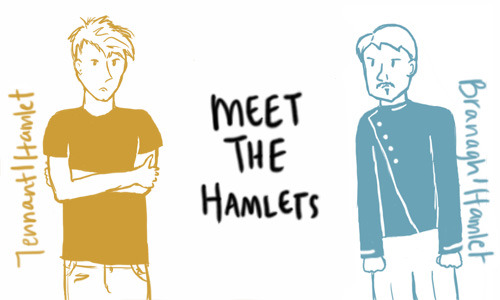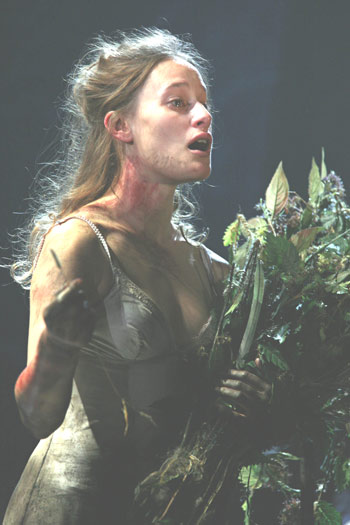I talked before about the concept in acting of
breaking the 4th wall. I am thinking that this is something we could put into our imaginary play because Shakespeare did it often. It is found most commonly in connection with the chorus or a chorus like character.
Shakespeare, in some of his histories, loosely followed the ancient Greek tradition of having a chorus in the play. This person or group of people would usually brake the 4th wall and talk directly to the audience about the plot and events and background of the play.
Here is an example from Henry V -
Chorus (Henry V, prologue)
O for a Muse of fire, that would ascend
The brightest heaven of invention,
A kingdom for a stage, princes to act
And monarchs to behold the swelling scene!
Then should the warlike Harry, like himself,
Assume the port of Mars; and at his heels,
Leash'd in like hounds, should famine, sword and fire
Crouch for employment. But pardon, and gentles all,
The flat unraised spirits that have dared
On this unworthy scaffold to bring forth
So great an object: can this cockpit hold
The vasty fields of France? or may we cram
Within this wooden O the very casques
That did affright the air at Agincourt?
O, pardon! since a crooked figure may
Attest in little place a million;
And let us, ciphers to this great accompt,
On your imaginary forces work.
Suppose within the girdle of these walls
Are now confined two mighty monarchies,
Whose high upreared and abutting fronts
The perilous narrow ocean parts asunder:
Piece out our imperfections with your thoughts;
Into a thousand parts divide on man,
And make imaginary puissance;
Think when we talk of horses, that you see them
Printing their proud hoofs i' the receiving earth;
For 'tis your thoughts that now must deck our kings,
Carry them here and there; jumping o'er times,
Turning the accomplishment of many years
Into an hour-glass: for the which supply,
Admit me Chorus to this history;
Who prologue-like your humble patience pray,
Gently to hear, kindly to judge, our play.
I thought it was interesting to see that though Midsummer Night's Dream is not a history and there is no chorus, Puck brakes the 4th wall quite often.
Here is an example -
Puck (Midsummer Night's Dream, Act V end)
If we shadows have offended,
Think but this, and all is mended,
That you have but slumber'd here
While these visions did appear.
And this weak and idle theme,
No more yielding but a dream,
Gentles, do not reprehend:
if you pardon, we will mend:
And, as I am an honest Puck,
If we have unearned luck
Now to 'scape the serpent's tongue,
We will make amends ere long;
Else the Puck a liar call;
So, good night unto you all.
Give me your hands, if we be friends,
And Robin shall restore amends.
After doing some research on the use of a chorus I found this from
Wikipedia.
"Plays of the ancient Greek theater
always included a chorus that offered a variety of background and summary information to help the audience follow the performance. The Greek chorus [also] comments on themes..." Here is the interesting part. "
The chorus also represents, on stage, the general population of the particular story, in sharp contrast with many of the themes of the ancient Greek plays which tended to be about individual heroes, gods, and goddesses." Knowing this I thought back to my personal play (Richard II) and tried to find a representative character. I also found some other supporting online references that pointed me in the direction of the Gardener. This is supported by they fact that he was a commoner whose lines are sandwiched in-between 2 scenes heavy in Kings, Queens, Lords and Ladies and such. He is also asked to recall the events of the play up to that point and continues on to foretell what he thinks will happen (he thinks that King Richard will loose the crown to Bolingbroke and maybe die). Because of his occupation, he is also able to articulate this using plant metaphors.
Gardener (Richard II, Act 3, sc. 4)
He that hath suffer'd this disorder'd spring
Hath now himself met with the fall of leaf:
The weeds which his broad-spreading leaves did shelter,
That seem'd in eating him to hold him up,
Are pluck'd up root and all by Bolingbroke...
From these examples we see that a chorus character is an important part of Shakespeare.
I think that it would fit nicely in the Puck story that has been suggested by
Andrew.
Please stay tuned for more about this.









